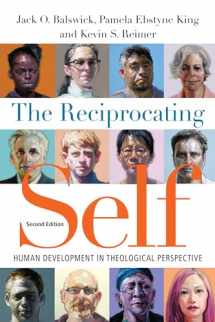
The Reciprocating Self: Human Development in Theological Perspective (Christian Association for Psychological Studies Books)
Book details
Summary
Description
On the basis of a theologically grounded understanding of the nature of persons and the self, Jack O. Balswick, Pamela Ebstyne King and Kevin S. Reimer present a model of human development that ranges across all of life's stages: infancy, childhood, adolescence, young adulthood, middle adulthood and elder adulthood. They do this by drawing on a biblical model of relationality, where the created goal or purpose of human development is to become a reciprocating self―fully and securely related to others and to God. Along the way, they provide a context for understanding individual development issues―concerns, tensions, worries or crises encountered by the self in the context of change. Awareness of these issues is most pronounced at developmental transitional points: learning to talk and walk, beginning to eat unassisted, going to school, developing secondary sexual physical features, leaving home, obtaining full-time employment, becoming engaged and then married, having a child for the first time, parenting an adolescent, watching children move away from home, retiring, experiencing decline in physical and mental health, and, finally, facing imminent death. The authors contend throughout that, since God has created human beings for relationship, to be a self in reciprocating relationships is of major importance in negotiating these developmental issues. Critically engaging social science research and theory, The Reciprocating Self offers an integrated approach that provides insight helpful to college and seminary students as well as those serving in the helping professions. Those in Christian ministry will be especially rewarded by the in-depth discussion of the implications for moral and faith development nurtured in the context of the life of the church. In this revised and expanded second edition, Balswick, King and Reimer have added research from developmental neuroscience and neuropsychology, which connects transitional behavior to a changing brain. They have also included a wealth of research on the moral, spiritual and religious dimensions of human development, in which they introduce the notion of reciprocating spirituality. In addition the authors engage with the burgeoning fields of positive and evolutionary psychology.


We would LOVE it if you could help us and other readers by reviewing the book
Book review





